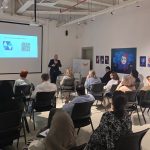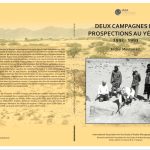Yemen : Quarantined for Five Years
- admcef22
- January 30, 2023
Sunday April 19, 2020
In a world that is now experiencing the stress of imposed confinement, Yemen appears as somehow out of place. Regardless of current discourses that claim Covid-19 is widely spread in North and Midland Yemen (which are mostly under Huthi control), data of the WHO suggests that the virus remains for now a threat more than a reality. The various competing authorities of the country have taken sanitary measures and the virus has become the talk of the town. However, with largely inefficient institutions and people barely surviving, it is far from a life changer. Schools, airports, museums, and businesses have already been closed for years.
If most researchers in the Arabian Peninsula and elsewhere are now analyzing the effects of quarantine on their work and methods, the reality is that for most academics or experts in Yemen, confinement has been a reality for more than five years. Lack of salaries, impossibility to move safely or to get out of the country due to harsh visa regimes and blockades has affected our daily lives much more than the current pandemic. We have thus, and our children with us, come to see quarantine as a kind of normality, not really understanding the fuss made in the international media. Indeed, our own ply was largely ignored despite the deaths and humanitarian catastrophes.
Our capacity as researchers to carry out fieldwork and interviews, or to work the way most of our colleagues outside of the country did until recently, has been destroyed for long. Our access to books and debates, and our freedom of expression have all been negatively affected. Even our internet connection is shaky. One of the main issues that we, as experts, are experiencing is linked to the centrality of propaganda coming from all warring parties. As social scientists working on political dynamics, we have been forced since 2015 to navigate new waters, those of complex proxy wars, arms sales industries, crimes and oil interests. We have thus understood that money and resources are not spread equally and that some colleagues have been capable of taking advantage of the situation, blurring much of the reality by spreading biased narratives. In such an environment, independence and professionalism are no longer assets, unless one has been able to escape the country.
I feel, along with many Yemenis, that the pandemic is only business as usual : a different chapter of the same story, that of the alienation of Yemen. Such pessimistic statements coming from an independent researcher may appear as shocking for some outside of Yemen who feel they are experiencing truly historic moments. It may be incomprehensible since many foreign journalists, experts and diplomats (deprived from access to Yemeni territory, unlike me) are waiting for a voice inside the country to explain what is happening. Yet, I cannot help but feel that the gap between our experiences and that of the world is only growing with the current Covid-19 pandemic.
Voir en ligne : Pour plus de billets sur le COVID-19 dans la péninsule Arabique






